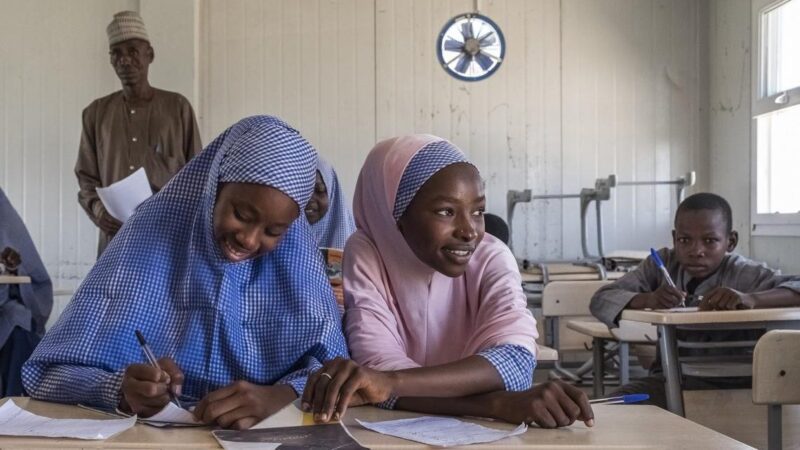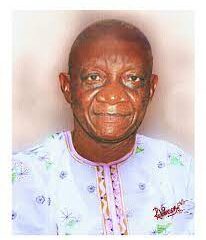Educational Issues
Girls’ Education: Good News from Jigawa! -By Abdu Abdullahi
While there is dearth of female health personnel in the state to attend to female patients especially in our rural areas in conformity with our norms and culture, a program called G for H, meaning,( girls for health) has been in practice in our secondary schools. Its fundamental dogma is selecting students who will be trained on health matters right from secondary school level. Those to be selected must also undergo the process of examination to determine the competent ones.

According to Aristotle, education is any experience through which knowledge is acquired, the intellect enlightened and the will strengthened.
In Jigawa state, we have glad tidings on girls’ education which is promoted to meet the rising challenges of our time. Girls’ education in Jigawa is both growing and developing to offer the state a befitting status that will uplift it to greater heights in the nearest future. It is generally agreed that education is the only key to empower girls and shape their living. Educating a girl means brightening the future of the country. Who doesn’t want our future to be bright? Surely, educating a girl in the present can be a miracle in future. There is no doubt that education reforms a girl’s life and girls are the base of life; if you educate them, you empower them as well as empowering the nation. Let us therefore continue to join our hands together to uplift girls’ education in Jigawa state so that prosperity will not laugh at us!
A Chinese proverb has it that education is the best legacy to give a child because giving a child a skill is better than giving him or her thousand pieces of gold . When a girl is educated therefore, she taps the full potentialities endowed in her and discovers to be whoever and whatever she wants to be. Contextually therefore, girls’ education stands big to move any society forward. To educate a girl child means to train her mind, character and abilities. The greatest favour a girl child can get is ” to get education” and ” to give others education.”
Statistics have shown that of Jigawa’s population, 2.8 million are female, representing 44 percent. While 3.4 million are male, representing 56 percent. Thus, the female population here is significant and boosting girls education will go a long way in uplifting the future to be very bright. At this point, it is imperative to refer to analysis of data from Jigawa’s Annual School Census showing that while the percentage of girls enrolled in primary schools has improved at the state average level, it has also increased in the three pilot areas: Miga, from 36 percent to 40 percent; Roni, from 43 to 47 percent and Birniwa, from 44 percent to 49 percent respectively.
In the Nation newspaper of June 2, 2022, it reported how more girls between 6 and 11 years were enrolled in schools. Also, the UBEC report has it that the enrollment rate of girls in primary school in Jigawa has been increasing. When Governor Badaru Abubakar signed the Child Rights Bill into law on December 22, 2021, it was proportionally delightful that the bill would prioritize access to education for the girl child. Interestingly, girls education has been tuition-free right from primary up to tertiary level!
Under a laudable program named Female Teachers Development Scheme( FTDS), the Ministry of Education, Science and Technology is promoting female teachers to cater for the future educational needs of the state. SS I students who are interested in teaching sit for examination in which the best 50 are selected for the program. Ten girls’ boarding schools across the state are now conducting this noble program which commenced six years ago and is yielding fruitful results in favour of the state and girls development.
The philosophy behind the creation of FTDS has been informed by the basic fact that the number of female teachers across the state is very negligible in comparison to their male counterparts. Hence, the urgent need to bridge the wide gap. The subjects taught under the FTDS are English Language, Education and Enterprenuer courses. These are offered as extra lessons with the teachers paid allowances. The enterprenueship training covers areas such as poultry, tailoring, knitting, beads making, wire works, snacks production and pomade making.
The products are sold and the fund realized is re-invested for sustainable production. The aim here is to make the students self reliant and the Ministry of Education, Science and Technology provides all the necessary equipment and items for the skills acquisitions. The teachers that give them this special training are themselves trained annually to ensure effectiveness of delivery as well as result-oriented skills undertaking.
While there is dearth of female health personnel in the state to attend to female patients especially in our rural areas in conformity with our norms and culture, a program called G for H, meaning,( girls for health) has been in practice in our secondary schools. Its fundamental dogma is selecting students who will be trained on health matters right from secondary school level. Those to be selected must also undergo the process of examination to determine the competent ones. Already, 11 girls schools are on the piloting stage. In each of these schools, SSI students sit for a test and the best 20 are qualified to be exclusively trained on science subjects and health related issues. The parents and guardians of the beneficiaries of this scheme are informed for their consent before their( girls) participation.
At the Federal College of Education Technical, Bichi, Jigawa state female students from all the local government areas who are interested in studying Home Economics are given free forms, paid for JAMB and all the tuition fees and other charges are settled by the government through out the duration of the course. The products are ultimately offered automatic employment by the state government after graduation. In a related development in 2021, the Jigawa State government sponsored 100 female students to study medicine at the AFHAD University for Women, Onduruman, Sudan.
Between 2013 and 2019, an educational program targeted at girls from Jigawa and Kano was launched and funded by John D., Catherine T. and MacArthur Foundation. It was named Partnership to Strengthen Innovation and Practice in Secondary Education ( PSIPSE). Its primary objective was to empower girls in some selected intervention schools by providing them opportunities for vocational skills business development information and improved livelihood through safe spaces and after school clubs. It was also targetted at improving school security and community commitment to protecting girls schools by strengthening school- community relations.
While the project touched many educationally disadvantaged Girls Schools as over 1000 girls were impacted by the project, the percentage of girls students with at least 5 credits including English and Mathematics from PSIPSE intervention schools was 3.7 percent in Kano and 23.4 percent in Jigawa in 2013. In 2015, the performance increased up to 63.0 percent in Jigawa and 45.4 percent in Kano respectively.
In 2017, the state SUBEB commenced the payment of termly stipend of 19,000 to each girl child at selected Primary and Junior Secondary Schools. The scheme was bankrolled by a development partner, Global Partnership on Education(GPE). The intervention also captured the parents to benefit from 40,000 aimed at discouraging them from engaging girl- children in child labour that prevents them from going to school. This development generated high interest amongst parents who ensured that their children were enrolled in these schools. In 2021, no fewer than 36,800 out-of-school girls and Almajirai were enrolled in special primary schools in Jigawa State under the Better Education Service Delivery for All( BESDA) project. Eventually, it was a triumph for the state in particular in tackling the menace of out-of-school girls.
At this juncture, it is interesting to briefly refer to the enthusiastic and prolific Suwaiba Yunusa. In 2016, she was the only female teacher at Janbulo Islamiyya Primary School in Roni, Jigawa state. Suwaiba’s presence convinced parents to send their girl children to school, while the girls students were happily chanting her name because they saw someone like her. Seeing her as a role model, the girls could talk to her about any issue especially as they grew up and entered puberty.
The more we boost girls’ education in Jigawa, the more Suwaibas we produce as teachers as well as in other disciplines of human undertakings. Indeed, a vote for girls’ education in Jigawa is a vote for overwhelming prosperity and longterm development!
















